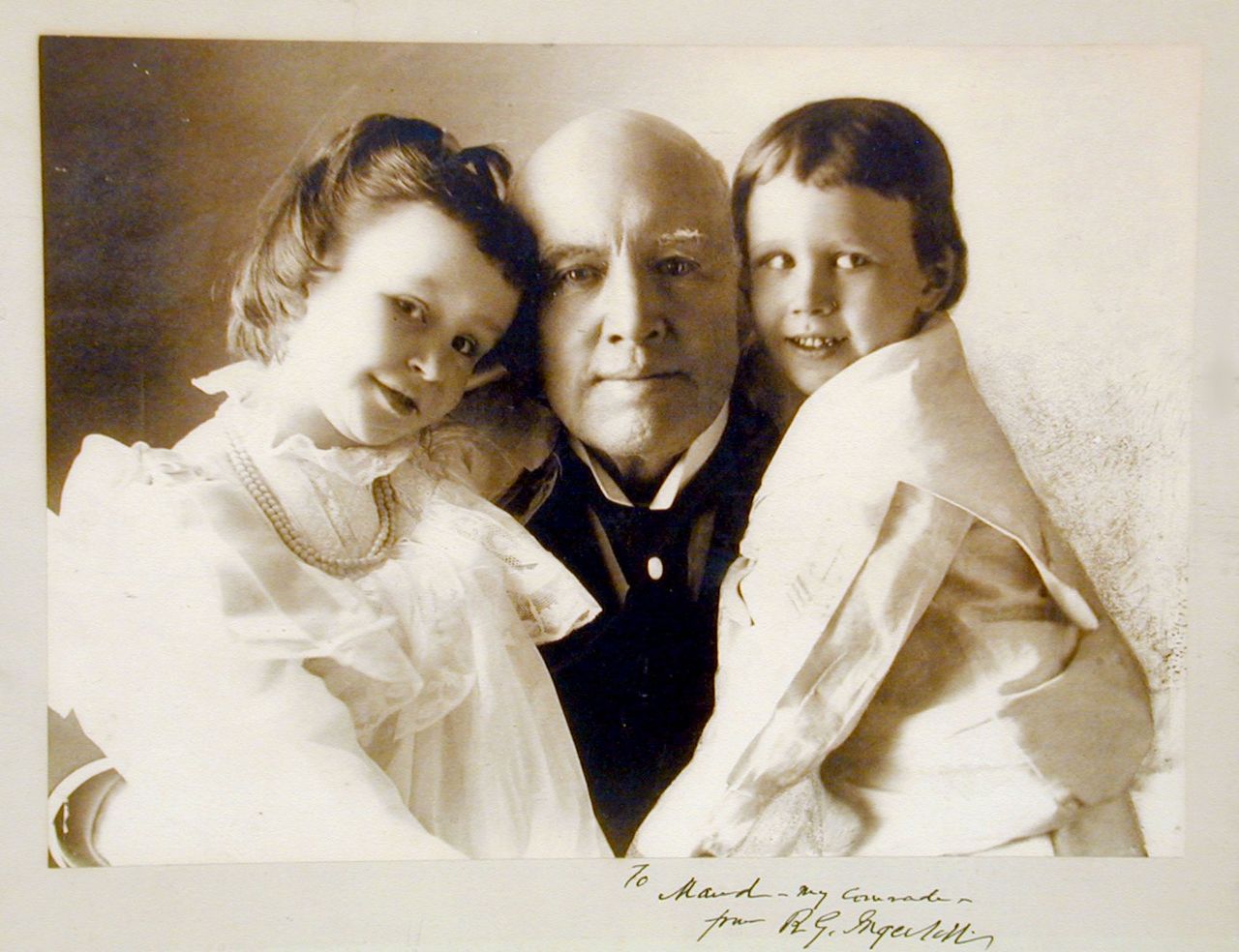Go east of Dallas on Interstate 30 until you reach Highway 67 near Mt. Vernon. Take that on east and about 30 minutes before you reach Texarkana, you’ll arrive in a little town of about 1,000 people named Ingersoll. Well, it was called Ingersoll when it was founded around 1875. But the name was unofficially changed to Redwater 10 years later, and was made official by the Post Office almost a decade after that. How the name came to be changed is a story worth telling.
Let’s begin with the name Ingersoll, or should I say, Robert Green Ingersoll. That’s the man the founders admired and decided to name their new town after. You may have never heard of Robert Green Ingersoll, but that’s only because you didn’t live in the late 1800s in America. Back then Ingersoll was one of the most famous people in the nation. He was friends with Abraham Lincoln and Mark Twain and Ulysses S. Grant. He was a giant in the Republican Party, and any Republican who wanted to succeed at the national level needed and lusted after Ingersoll’s endorsement – and his oratorical talents. Had he wanted to, he would have made a formidable candidate for the presidency himself, except for the little problem of his nickname: He was known everywhere in America and abroad as “The Great Atheist” or “The Great Agnostic.” There is, of course, a great deal of difference between atheism and agnosticism, but for fundamentalist theists, there is no difference because both groups are destined for eternal damnation. Ironically, it was the concept of hell that Ingersoll most despised and likened to a vengeful fairy tale. In any case, such a label, whether agnostic or atheist, was considered too great a liability for a politician in that era to overcome. Might be still.
Despite his reputation as a freethinker and anti-religious zealot, he was well-liked. Many religious people truly enjoyed his company and found him warm, engaging, charismatic, eloquent, even brilliant. Ingersoll attacked religious belief, but never the believer. From 1860 to 1899, he was one of the highest-paid speakers in America, and mostly he spoke about the dangers of religion, even though he himself had been a Presbyterian minister’s kid. The subjects he spoke about, like “Some Mistakes of Moses” and “The Frightful Dogma of Hell,” were considered blasphemous by many, but he nonetheless packed the halls where he spoke with believers and skeptics alike. He called his religion “humanity.” His central doctrine was this: “Happiness is the only good. The time to be happy is now. The place to be happy is here. The way to be happy is to make others so.”
Ingersoll was quite ahead of his time. He was an outspoken abolitionist and for voting rights for blacks and women. He said it was a shame to think that women were always restricted to the shallow wisdom of their husbands.
People used to gather in front of his home in Washington, D.C., to pray for his conversion. One woman visited him in his home often to try to convert him, but she finally, after seeing him accept both the high and mighty and impoverished into his home with equal graciousness, gave up. She apologized and told him, “I do not care what you believe. You are leading more of a Christian life than I ever hope to accomplish.”
But Ingersoll’s fame died with him, in 1899. It seemed he would be confined to the century that had defined him.
So we return now to Texas. How did Ingersoll lose his town? Well, in 1886 a revival meeting was held there and it was a mighty successful one in terms of saving souls. There were 110 people from that region baptized, or, you might say, “born again” in that week. And given that the town only consisted of about 50 to 60 people then, it suddenly became thoroughly devout and could not suffer the indignities of living under the name of a famous agnostic. So they all agreed to rename the town Redwater, after a new well was found to yield red water.
So that is how Ingersoll, Texas, became Redwater, Texas. And how Robert Green Ingersoll became, as The Washington Post called him in 2012, “the most famous American you never heard of.”















